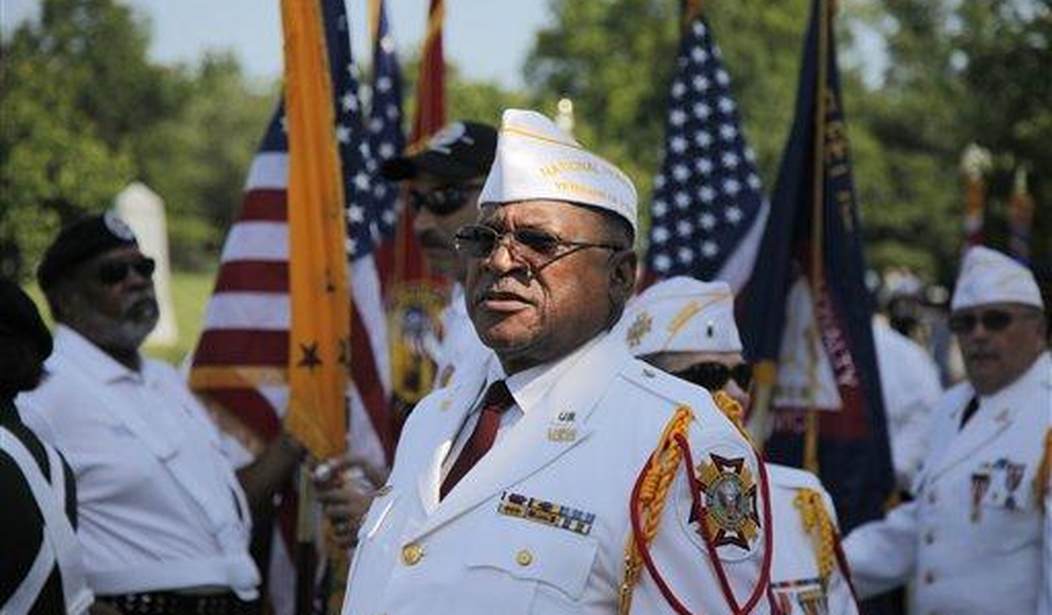Memorial Day often marks the beginning of summer in earnest. Americans go outside, enjoy a barbecue, watch football, and take some time to remember the brave men and women who lost their lives to protect and serve the United States of America. The coronavirus may dampen some of these celebrations, but it should not impact America’s tribute to the soldiers, sailors, airmen, and marines. Yet the editors at The New York Times thought Memorial Day weekend a great time to post a screed asking the question, “Why Does the U.S. Military Celebrate White Supremacy?”
Sure, the editorial posted on Saturday, not Monday. But it still came out during the weekend Americans associate with the holiday dedicated to commemorating the deaths of those who gave their last measure of devotion to this country. On that weekend, the Times accused the military — as a whole — of “celebrating white supremacy” because … military bases are named after Confederate generals.
Yes, that’s the entirety of the “evidence” that the military supposedly celebrates “white supremacy.”
The Times accused the U.S. military of celebrating racism because ten of America’s eight hundred military bases are named after Confederates — and the editors of America’s newspaper of record chose Memorial Day weekend to run this editorial.
The editorial provides some excellent reasons why military bases should not be named after Confederate generals — and especially some notoriously racist and just plain incompetent generals, at that. While I disagree with the campaign to level Confederate statues and erase the memory of the Civil War from public places, I happen to agree that no military installation should be named after General George Pickett, who was accused of cowardice at Gettysburg and who faced a war-crimes investigation for executing 22 Union soldiers near the end of the war. It appears he only escaped execution himself due to cronyism. His name should be removed from Fort Pickett.
The Times editors make two arguments for removing the names of Confederate generals in their Memorial Day weekend editorial. First, “these men were traitors. These rebel officers, who were willing to destroy the United States to keep black people in chains, are synonymous with the racist ideology that drove them to treason.”
Is this true? The Confederacy was founded after a ten-year period in which Southerners increasingly wanted to expand slavery into the Western territories. The Founders accepted that they could not abolish slavery while keeping America together, but they did exclude slavery from the territories under the Northwest Ordinance. Southern politicians kept pushing the envelope, first drawing a line to allow slavery to expand into the territories south of Missouri and then they fought to enable slavery to spread into Kansas and Nebraska. A mini-Civil War broke out in Kansas after the federal government allowed the white people in the state to determine whether or not it would be a free state.
The southern states seceded because they feared Abraham Lincoln, who was not an abolitionist but who opposed the expansion of slavery into the territories. The Confederacy was not founded to preserve slavery — it was founded to expand slavery. The Union did not fight to abolish slavery until toward the end of the war.
Thanks, China. COVID-19 Kills an American Memorial Day Tradition
Lincoln convincingly argued that since the Constitution had no clause to allow for secession, the Confederacy was a rebellion. The New York Times editors are right to call the Confederacy a rebellion, but the generals had various reasons for supporting it. Some, like Robert E. Lee, fought to protect their states and their families than to expand slavery. Lee was far from perfect — he owned slaves, after all — but he was a consummate general and he arguably deserves to be remembered on military installations.
The Times‘ second objection is more serious.
The second difficulty is that the base names were agreed upon as part of broader accommodation in which the military embraced stringent segregation so as not to offend Southerners by treating African-Americans as equals. The names represent not only oppression before and during the Civil War, but also state-sponsored bigotry after it.
This is tragically true. The U.S. armed forces were segregated until after the end of World War II. The New York Times editors explain that the military embraced the Jim Crow system, which “undermined the country’s readiness for war and destroyed morale, introducing black recruits to a brand of hard-core racism many had not experienced in civilian life.” Horrifically, the military system “actually spread federally sponsored segregation into areas where it had never before existed with the force of law.”
“In other words, the base names were part of a broad federal sellout to white supremacy that poisoned the whole of the United States,” the editors argue.
America has a tragic history of race-based slavery, segregation, and racial terrorism led by the Ku Klux Klan. As the Times editors noted, Adolf Hitler actually praised America’s system of segregation.
The military’s segregation is particularly horrific because so many brave black Americans fought and died for this nation. Even under such conditions, black men joined the ranks and proved their valor — and Americans should be eternally grateful to these heroes, especially on Memorial Day.
Yet in 1948, President Harry Truman finally desegregated the armed forces. His executive order stipulated that “there shall be equality of treatment and opportunity for all persons in the armed services without regard to race, color, religion or national origin.” The Times editorial itself gives compelling evidence that this desegregation took.
Fifteen years later, a young African-American Army officer named Colin Powell marveled at the contrast between the fairness and opportunity he experienced at Fort Benning, Ga., and the racist treatment he suffered at off-base restaurants that refused to serve him. In his memoir “My American Journey,” Mr. Powell describes the racially integrated bases of the segregated 1960s-era South as “healthy cells in an otherwise sick body.” Nevertheless, for the first half of the 20th century, the U.S. military contributed mightily to the very “sickness” Mr. Powell condemns.
Yes, the military formed part of America’s tragic racist past. Yet Powell’s experience showed that American soldiers, sailors, airmen, and marines succeeded in creating a culture of greater racial equality even when America’s broader society still engaged in horrific segregation.
That should be the message Americans take from the Times editorial this Memorial Day. Yes, the U.S. military shamefully named bases after horrible Confederate generals while it fostered a culture of segregation in the first half of the twentieth century. But somehow, American soldiers, sailors, airmen, and marines turned that culture around before the civil rights movement.
Should the armed forces remove some of the names of Confederate generals from military installations? I think that would be a good idea, especially in the case of George Pickett while less so in the case of Robert E. Lee. But does the U.S. military — not just the command but the entire soldiers, sailors, airmen, and marines who lay their lives on the line for America — celebrate white supremacy?
Absolutely not, and it is utterly shameful for The New York Times to post such a screed before Memorial Day.
Tyler O’Neil is the author of Making Hate Pay: The Corruption of the Southern Poverty Law Center. Follow him on Twitter at @Tyler2ONeil.









Join the conversation as a VIP Member